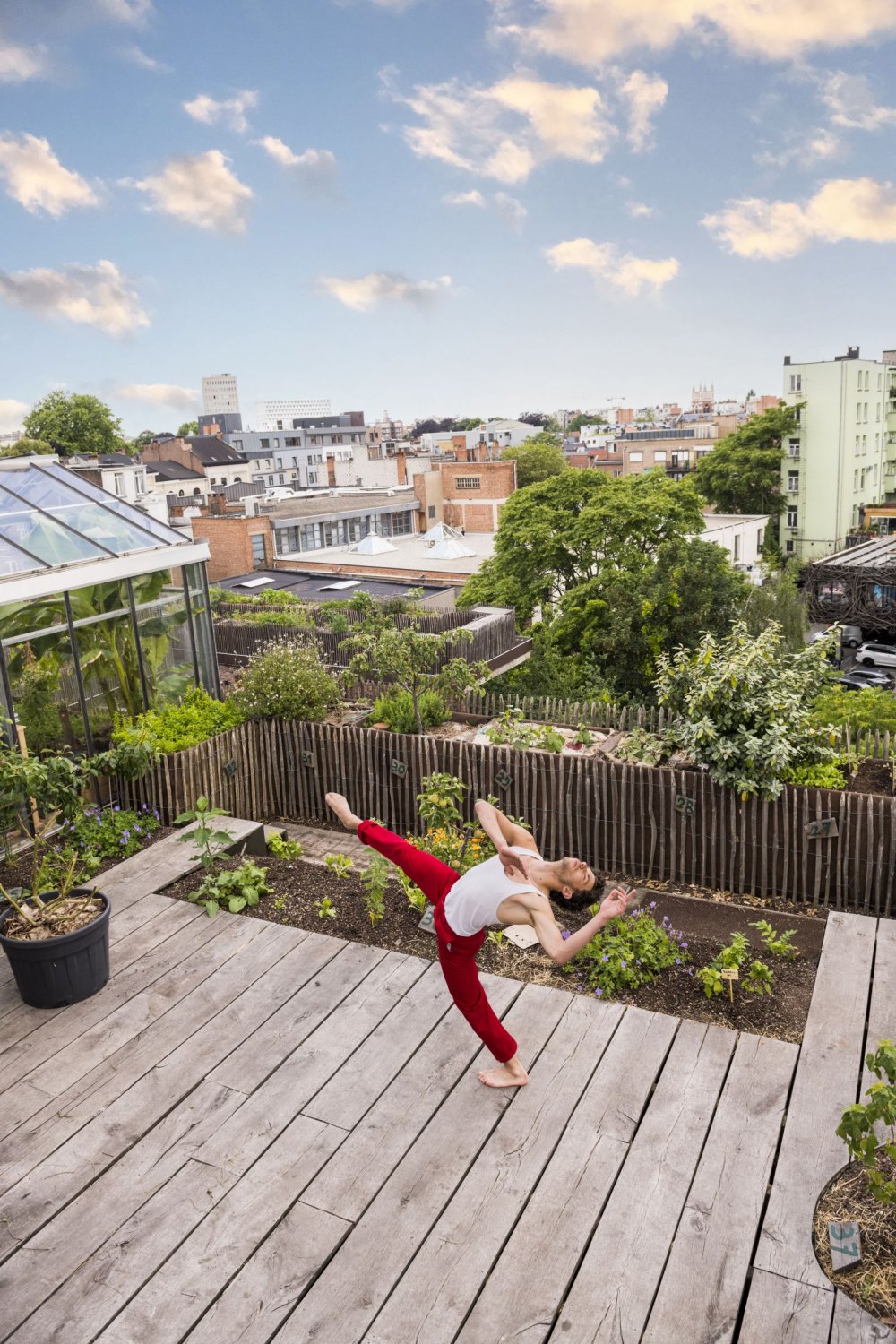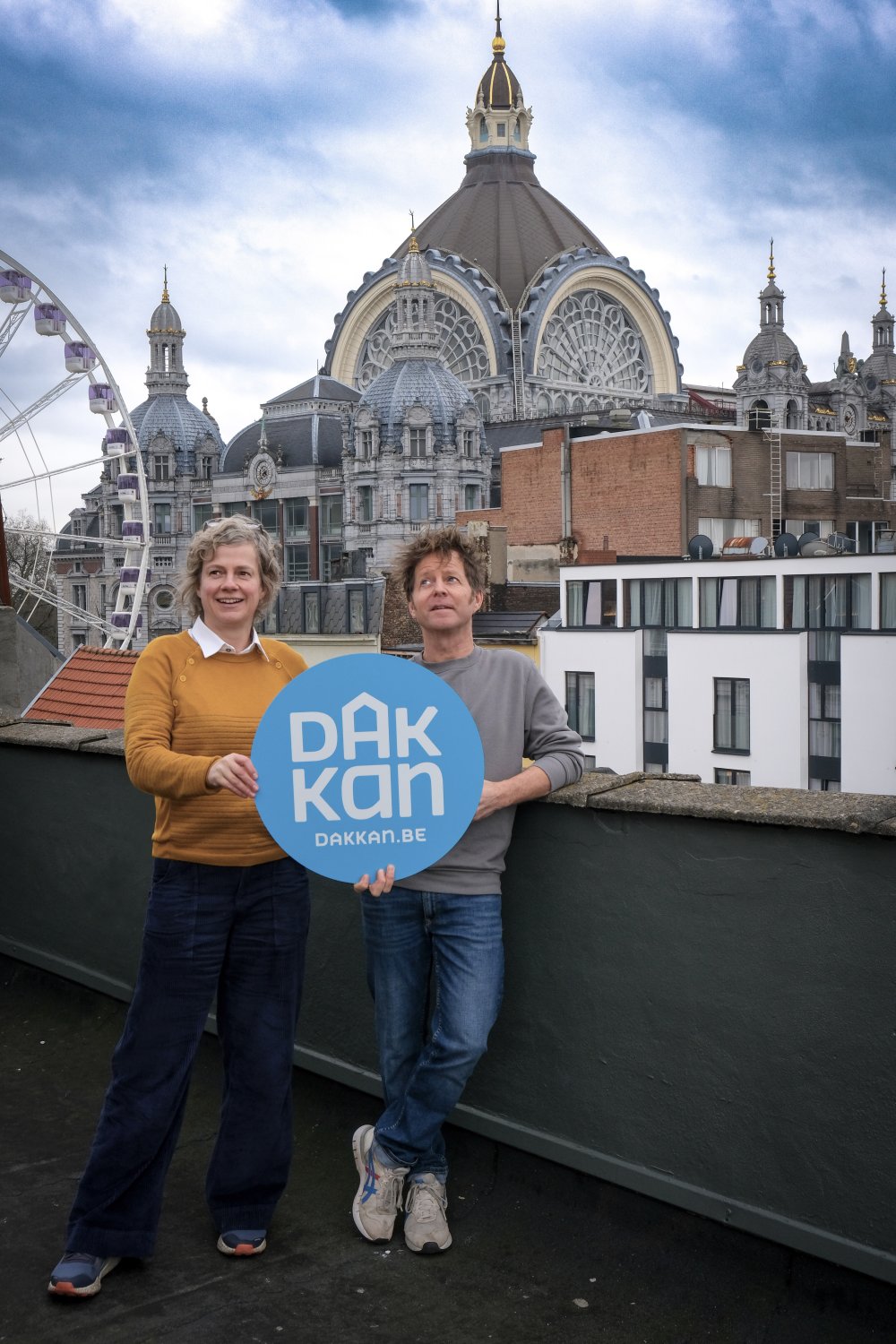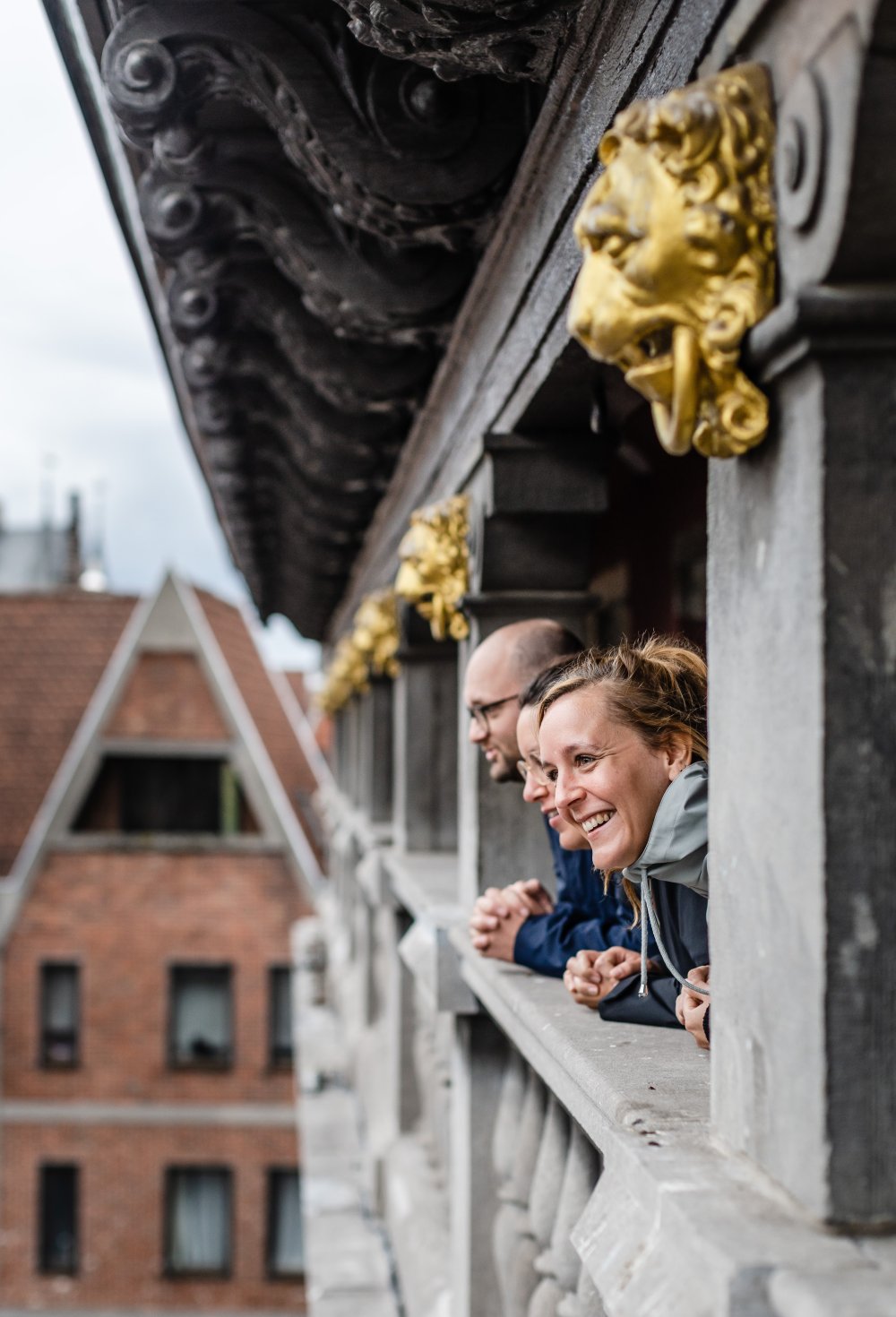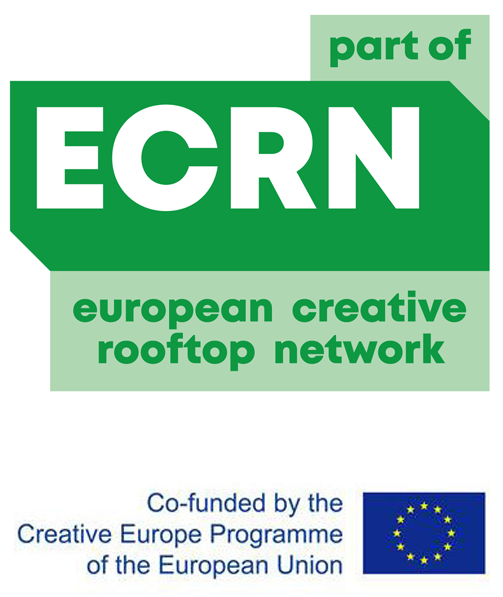About DAKkan
The DAKkan programme of stad Antwerpen aims to repurpose the rooftops of Antwerp for social, cultural and sustainable activities.
Why DAKkan?
Antwerp is home to 1.5 million m2 of flat rooftops, or the equivalent of 3000 football fields. The majority of this space is not being used to its fullest potential. With the new realities of climate change, these rooftops present unexplored opportunities. The COVID-19 pandemic was another driver for many citizens of Antwerp to discover the value of their green outdoor spaces. And the movement is growing across the globe as cities are optimizing their rooftops to increase sustainability (as alternative sources of biodiversity, water collection, energy or food production), or to provide new qualitative public spaces for growing populations.
DAKkan is a cultural event, but continuously addresses themes such as urban, environmental and social development.
Together with several partners, the DAKkan team is putting together a vision for climate-resilient rooftops, including for example, the city's own built heritage.
DAKkan festival
DAKkan is a biennial festival which takes place on the rooftops of Antwerp.
Born in 2018, DAKkan was originally an initiative of EcoHuis Antwerpen. With 3.000 visitors and 13 participating rooftops, the first edition was an immediate success. The second edition took place in 2020, and saw 42 rooftops attract a total of 5.900 visitors. In the 2022 edition, 6.540 visitors enjoyed the rooftop gardens of the city and a cultural programma on more than 60 rooftops in total. DAKkan is an initiative from stad Antwerpen, the city's department of culture, and EcoHuis Antwerpen.
DAKkan goes European
Through DAKkan, the city of Antwerp is a part of the European Creative Roof Network (ECRN). The ECRN aims to maximize the use of urban roofs for cultural, social and sustainable purposes. It supports research, dialogue, and inspirational activities and experiences. The network consists of the cities Faro and Chemnitz, as well as organizations from Amsterdam, Barcelona, Belfast, Gothenburg, Nicosia and Rotterdam.
The ECRN will receive financial support from the European Education and Culture Executive Agency for 4 years.
For more information, please visit www.ecrn.city. On the website you will also find the Rooftopedia: an overview of all the inspiring roofs in the network.



